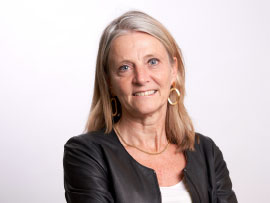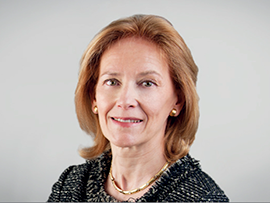EasyJet plc: Difference between revisions
Walkera-y14 (talk | contribs) |
(Added section on Impact of COVID-19 and Recovery Process) |
||
| Line 65: | Line 65: | ||
EasyJet holidays customers will benefit from ultimate flexibility and can choose exactly how many nights they wish to stay thanks to the strength of the easyJet fleet and its flying schedule. EasyJet holidays is directly contracting hotels for the first time, giving holidaymakers the choice of staying at handpicked hotels. The range of high-quality hotels has been carefully selected by experts, with bespoke collections carefully designed to suit every holiday type.<ref>https://www.easyjet.com/en/holidays/media-centre/press-releases/easyjet-launches-new-holiday-business</ref> | EasyJet holidays customers will benefit from ultimate flexibility and can choose exactly how many nights they wish to stay thanks to the strength of the easyJet fleet and its flying schedule. EasyJet holidays is directly contracting hotels for the first time, giving holidaymakers the choice of staying at handpicked hotels. The range of high-quality hotels has been carefully selected by experts, with bespoke collections carefully designed to suit every holiday type.<ref>https://www.easyjet.com/en/holidays/media-centre/press-releases/easyjet-launches-new-holiday-business</ref> | ||
=== Impact of COVID-19 and Recovery Process === | |||
During the COVID-19 pandemic, EasyJet, like many other airlines, faced significant challenges. The company reported a full-year loss of £1.3 billion, marking the first annual loss in its 25-year history. The pandemic led to a sharp decline in air travel demand, and the airline was forced to cut back on its flights. However, the announcement of positive news on COVID-19 vaccines, particularly from Pfizer and BioNTech, had a notable impact on the company's bookings. Sales surged by 50% in a week following the vaccine news. | |||
The airline responded to the reduced demand and travel restrictions by cutting around 20% of its planned winter schedule. Despite the challenges, EasyJet's CEO, Johan Lundgren, remained optimistic about the future, citing that the longer travel restrictions were in place, the more pent-up demand was building. The positive outlook was further bolstered by holiday bookings for summer 2021, which were significantly ahead of previous years, albeit driven partly by customers who had rebooked using vouchers from cancelled flights in 2020. | |||
Lundgren also acknowledged that short-haul and leisure routes, which formed the core of EasyJet's network, were expected to recover more quickly compared to long-haul and business travel. The airline aimed to open seasonal bases in Málaga and Faro for the upcoming summer season, indicating confidence in the recovery potential. | |||
While the company faced financial losses, it took measures to improve its liquidity. EasyJet raised £3.1 billion in cash between April and November 2020 through various means, including the sale and leaseback of aircraft and deferring the delivery of new planes. However, cost-cutting measures also resulted in a significant number of redundancies, affecting up to 4,500 employees.<ref>https://www.theguardian.com/business/2020/nov/17/easyjet-loss-covid-cut-flights-vaccine-bookings</ref> | |||
More recently, EasyJet indicated signs of recovery as bookings for peak periods, such as Christmas, the ski season, and other holidays, returned to pre-pandemic levels. The airline dramatically reduced its full-year loss to £178 million, showing a significant improvement from the previous year. EasyJet's CEO, Johan Lundgren, noted strong demand during peak periods and cited a survey indicating that three-quarters of people were interested in traveling next year, despite the cost-of-living crisis. | |||
The company also implemented measures to cope with rising costs, including increasing ticket prices as jet fuel and other expenses rose. Despite these increases, half of all tickets sold until the following September were expected to cost less than £50, aligning with EasyJet's reputation for offering value to customers. Destinations in the eastern Mediterranean, such as Turkey, Egypt, and Greece, were particularly popular among travellers. | |||
While the airline witnessed strong demand during peak periods, it acknowledged that stimulating demand during quieter times remained a challenge. However, EasyJet expected to fully return to 2019 capacity levels by the summer of 2023, indicating a positive outlook for the recovery. | |||
To address staff shortages and avoid travel disruptions, EasyJet began early recruitment for the next summer season and received a remarkable response with 19,000 applications for 2,000 jobs. The company also engaged in conversations with contractors and the government to ensure labour availability for the aviation sector. | |||
In summary, EasyJet faced substantial losses due to the COVID-19 pandemic, but the news of effective vaccines resulted in a surge in bookings. The airline implemented various measures to manage its finances, including raising cash and reducing costs. With bookings for peak periods returning to pre-pandemic levels and an optimistic outlook for the next summer season, EasyJet appears to be on a path of recovery, although challenges related to stimulating demand during quieter times and managing rising costs persist.<ref>https://www.theguardian.com/business/2022/nov/29/easyjet-bookings-covid-losses-tickets</ref> | |||
== Market == | == Market == | ||
Revision as of 16:18, 24 July 2023
 | |
| Founded | 1995 by Sir Stelios Haji-Ioannou |
|---|---|
| Operating bases | |
| Frequent-flyer program | Flight Club |
| Subsidiaries | EasyJet UK EasyJet Europe EasyJet Switzerland (40%) EasyJet Holidays |
| Fleet size | 326[1] |
| Parent company | EasyGroup (33.73%)[2] |
| Traded as | |
| Headquarters | Hangar 89, London Luton Airport, Luton, England, UK |
| Key people | |
| Revenue | |
| Operating income | |
| Net income | |
| Employees | 13,000 (2023)[4] |
easyJet plc operates as an airline carrier primarily in Europe. It also leases aircrafts, as well as operates tours; and provides financing services. As of September 31, 2021, the company operated 927 routes with approximately 308 aircrafts in 34 countries; and 153 airports. It sells seats through its own website www.easyjet.com and its easyJet Worldwide' platform, its mobile application, global distribution systems, corporate online booking tools, content aggregators, and tour operator. easyJet plc was founded in 1995 and is headquartered in Luton, the United Kingdom.
Operations
How did the idea of the company come about?
EasyJet originated from its founder Stelios Haji-loannou who became interested in the idea of establishing an airline after initially being approached by Virgin Atlantic as a potential investor. Stelios particularly liked the business model of adapting prices to make air travel competitive with more traditional methods of transport such as buses. He believed this would welcome many more customers that usually didn't choose to fly.[5]
Stelios then went to on to set up EasyJet in 1995, employing 70 people. Stelios also established the easyJet headquarters known as easyLand built at Luton airport who offered Stelios a 15,000 square feet building to help the new company. Initially easyJet flew just two routes from Luton to Edinburgh and to Glasgow, supported by the advertising campaign "Making flying as affordable as a pair of jeans - £29 one way".[6]
The first international flight came in April 1996 when easyJet satrted the route to Amsterdam, competing with British Airways and KLM. These two competitors had different responses to the emergent company with BA sticking to their strategy whereas KLM allegedly responded with a "predatory pricing strategy" which led to the EU investigating.[5]
What's the mission of the company?
EasyJet's strategy is to make low-cost travel easy. The mission is to build on easyJet's "structural advantages" in the European aviation market, helping easyJet move closer towards its destination of being Europe's most loved airline. [7]
Key elements of easyJet's mission include:
- Building Europe's best network: easyJet's ambition is to build the best network in Europe. To do this, they will continue to lead in their core markets, building scale in Europe’s largest and most attractive travel markets. This will offer customers choice in terms of destination and schedule and will ensure highly efficient operations. In many cases, easyJet’s core markets are slot-constrained and we will continue to grow in these markets by building the slot portfolio as opportunities arise and through up-gauging as the average seats per aircraft increases in coming years. In addition easyJet will continue to build out their destination bases in top leisure locations. [8]
- Transforming revenue: easyJet has delivered exceptional revenue performance, especially in the ancillary revenue area. Continuing to develop and build in this area is a key priority in delivering the strategy, ensuring that they are able to maximise the revenue potential of the market. To deliver on this priority easyJet will continue to invest in its strong revenue management capability, ensuring that its market-leading position is maintained by developing new industry-leading capabilities which creatively leverage new sources of data and optimise ticket and ancillary revenue together. Additionally, they will continue to invest in diversifying our sources of revenue with an ongoing focus on easyJet holidays.[8]
- Delivering ease and reliability: To deliver ease and reliability, easyjet will continue to build on their areas of strength, in particular the digital booking and on-the-day experience and exceptional onboard service. This will be supported by investments in other key areas of the customer journey, in particular the airport experience, and continuing to improve On-Time Performance and reduce cancellation rates. Sustainability continues to be a priority for easyJet and its customers. The net zero roadmap recently launched demonstrates their commitment to leading in an area which is likely to be a key purchase driver in the future.[8]
- Driving a low-cost model: a highly efficient point-to-point network to deliver simplicity in operations and scale within airports. Providing disaggregated products and relevant bundles of products, allowing customers to pay for what they value. Ensuring they have a fleet with exceptional fuel efficiency and low maintenance costs. And most importantly, it means always challenging cost, ensuring that where easyJet spends it delivers tangible value to our customers. [8]
What are the main offerings of the company?

The main service easyJet provides is flights all across Europe and North Africa. Easyjet provides a number of different fares to try and accomodate to everyone's needs and desires, these include:
- Standard fares: includes the flight and an allowance for a small cabin bag. The customer can then decide if they would like anything else such as a seat reservation or more baggage but this comes with added fees.
- FLEXI fares: includes a large cabin bag, a hold bag, a 'Up Front' seat, on board meal deal, fast track and speedy boarding. In addition this fare offers free flight and route changes within 1 day either side of the booked day, with some restrictions applied. FLEXI customers are also entitled to the Gateway lounge in Gatwick North Terminal.
- EasyJet Plus: offers members Plus Bag Drop, no fee for choosing the seat, an additional cabin bag, fast track security and Speedy Boarding.
- Flight club: this is an invite only club for easyJet's most frequent travellers. The benefits include fee-free changes, a price guarantee (compared to other airline's fees), a price promise (if price ever decreases after booking a voucher worth the difference will be issued) and a preview of schedule seat releases and sales to let the mmembers know early what's coming up.
EasyJet also has a holiday business, called easyJet holidays, aimed at shaking up the sector with flexible, great-value holidays to handpicked hotels across Europe. UK customers can book Europe’s most loved hotels, together with any easyJet flight, on one platform. This will help to reduce the seven hours holidaymakers spend on average searching for a holiday, according to research by the new holiday company.
EasyJet holidays customers will benefit from ultimate flexibility and can choose exactly how many nights they wish to stay thanks to the strength of the easyJet fleet and its flying schedule. EasyJet holidays is directly contracting hotels for the first time, giving holidaymakers the choice of staying at handpicked hotels. The range of high-quality hotels has been carefully selected by experts, with bespoke collections carefully designed to suit every holiday type.[9]
Impact of COVID-19 and Recovery Process
During the COVID-19 pandemic, EasyJet, like many other airlines, faced significant challenges. The company reported a full-year loss of £1.3 billion, marking the first annual loss in its 25-year history. The pandemic led to a sharp decline in air travel demand, and the airline was forced to cut back on its flights. However, the announcement of positive news on COVID-19 vaccines, particularly from Pfizer and BioNTech, had a notable impact on the company's bookings. Sales surged by 50% in a week following the vaccine news.
The airline responded to the reduced demand and travel restrictions by cutting around 20% of its planned winter schedule. Despite the challenges, EasyJet's CEO, Johan Lundgren, remained optimistic about the future, citing that the longer travel restrictions were in place, the more pent-up demand was building. The positive outlook was further bolstered by holiday bookings for summer 2021, which were significantly ahead of previous years, albeit driven partly by customers who had rebooked using vouchers from cancelled flights in 2020.
Lundgren also acknowledged that short-haul and leisure routes, which formed the core of EasyJet's network, were expected to recover more quickly compared to long-haul and business travel. The airline aimed to open seasonal bases in Málaga and Faro for the upcoming summer season, indicating confidence in the recovery potential.
While the company faced financial losses, it took measures to improve its liquidity. EasyJet raised £3.1 billion in cash between April and November 2020 through various means, including the sale and leaseback of aircraft and deferring the delivery of new planes. However, cost-cutting measures also resulted in a significant number of redundancies, affecting up to 4,500 employees.[10]
More recently, EasyJet indicated signs of recovery as bookings for peak periods, such as Christmas, the ski season, and other holidays, returned to pre-pandemic levels. The airline dramatically reduced its full-year loss to £178 million, showing a significant improvement from the previous year. EasyJet's CEO, Johan Lundgren, noted strong demand during peak periods and cited a survey indicating that three-quarters of people were interested in traveling next year, despite the cost-of-living crisis.
The company also implemented measures to cope with rising costs, including increasing ticket prices as jet fuel and other expenses rose. Despite these increases, half of all tickets sold until the following September were expected to cost less than £50, aligning with EasyJet's reputation for offering value to customers. Destinations in the eastern Mediterranean, such as Turkey, Egypt, and Greece, were particularly popular among travellers.
While the airline witnessed strong demand during peak periods, it acknowledged that stimulating demand during quieter times remained a challenge. However, EasyJet expected to fully return to 2019 capacity levels by the summer of 2023, indicating a positive outlook for the recovery.
To address staff shortages and avoid travel disruptions, EasyJet began early recruitment for the next summer season and received a remarkable response with 19,000 applications for 2,000 jobs. The company also engaged in conversations with contractors and the government to ensure labour availability for the aviation sector.
In summary, EasyJet faced substantial losses due to the COVID-19 pandemic, but the news of effective vaccines resulted in a surge in bookings. The airline implemented various measures to manage its finances, including raising cash and reducing costs. With bookings for peak periods returning to pre-pandemic levels and an optimistic outlook for the next summer season, EasyJet appears to be on a path of recovery, although challenges related to stimulating demand during quieter times and managing rising costs persist.[11]
Market
Total Addressable Market
Total Addressable Market: Here, the total addressable market (TAM) is defined as the global aviation market, and based on a number of assumptions, it is estimated that the size of the market, in terms of revenue, is $XXX
Serviceable Available Market
Serviceable Available Market: Here, the serviceable available market (SAM) is defined as the global XXX , and based on a number of assumptions, it is estimated that the size of the market, in terms of revenue, is $XXX
Serviceable Obtainable Market
Serviceable Obtainable Market: Here, the serviceable obtainable market (SOM) is defined as the XXX, and based on a number of assumptions, it is estimated that the size of the market, in terms of revenue, is $XXX
Team
Leadership
Chief Executive Officer - Johan Lundgren
Johan Lundgren joined easyJet on 1 December 2017 as Chief Executive Officer. He has more than 30 years’ experience working in the travel industry, starting his career as a tour guide and occupying various roles in travel marketing and sales. Prior to joining easyJet in December 2017 as Chief Executive, Johan was the Group Deputy Chief Executive Officer and Chief Executive Officer of Mainstream Tourism at TUI AG. Prior to this Johan was the Managing Director for the Northern Region at TUI Travel plc from 2007 until 2011. From 2003 until 2007, he was the Managing Director and Chief Executive Officer of TUI Nordic. Johan led MyTravel’s businesses out of Canada and Sweden between 1999 and 2003, prior to which he was Managing Director of Always Tour Operations from 1996.
Senior Independent Director - Sue Clark
Sue was appointed to the Board on 1 March 2023. She brings significant strategic and commercial experience, having served as a member of the Executive Management team at SABMiller plc from 2003, Director of Corporate Affairs until 2012 and then Managing Director, Europe until the business was acquired in 2016. Prior to SABMiller she served as Director of Corporate Affairs for Railtrack plc and Scottish Power plc.
Sue currently serves as Senior Independent Director of Imperial Brands PLC and an independent Non-Executive Director of Mondi plc and Britvic plc.
Non-Executive Chair - Stephen Hester
Stephen joined the Board of easyJet as a Non-Executive Director and Chair Designate on 1 September 2021, and became Chair on 1 December 2021.
Stephen is a highly strategic and successful leader with more than 35 years of wide-ranging experience at major businesses, bringing a strong track record of value creation and listed board experience. Stephen has served as Chief Executive of RSA Insurance Group plc from February 2014 to May 2021, as Chief Executive of Royal Bank of Scotland Group, Chief Executive of British Land plc and Chief Operating Officer of Abbey National plc, as well as holding a number of senior executive roles at Credit Suisse First Boston in London and New York. He has also held senior non-executive positions as deputy chairman of Northern Rock and Senior Independent Director of Centrica plc. Stephen holds a BA (Hons.) in Politics, Philosophy and Economics from Oxford University.
Stephen currently serves as Lead Independent Director of Kyndryl Holdings, Inc and Chair of Nordea Bank Abp.
Independent Non-Executive Director - Ryanne van der Eijk
Ryanne was appointed the Board on 1 September 2022. Ryanne has extensive airline operations and customer service experience, having had a twenty year career with KLM, her last role being as Chief Experience Officer. She currently serves as Chief Operating Officer of Mentaal Beter, an organisation focused on mental healthcare in the Netherlands. Her previous senior executive appointments also include Chief Operating Officer for Dubai Airports and Chief Experience Officer for Ras Al Khaimah Economic Zone in the UAE.
Independent Non-Executive Director - Catherine Bradley CBE
Catherine was appointed to the Board on 1 January 2020. She has held a number of senior finance roles for 33 years in investment banking and risk management, in the US, then the UK and finally Asia, starting with Merrill Lynch for ten years. Latterly she joined Credit Suisse as Managing Director for 9 years, first in London since 2003 as Head of Client Coverage and then in Hong Kong from 2008 to 2012 as Head of Equity-Linked Solutions Group for Asia-Pacific. She finished that phase of her career as Head of Advisory Global Markets with Societe Generale Asia until 2014. From 2014 until July 2020, she was a Non-Executive Director of the UK Financial Conduct Authority and Chair of its Audit Committee, a Non-Executive Director of WS Atkins plc from 2015 until its delisting in 2017, and a Member of the Supervisory Board, Chair of the Finance and Audit Committee, and Appointments, Compensation and Governance Committee member for Peugeot S.A. from 2016 to 2021. Catherine graduated from HEC Paris with a major in Finance and International Economics, and was awarded a CBE in 2019.
Catherine is a Non-Executive Director of Johnson Electric Holdings Limited and Chair of their Nomination and Governance Committee, a Non-Executive Director of abrdn plc and Chair of their Audit Committee, and Senior Independent Director of Kingfisher plc.
Chief Financial Officer - Kenton Jarvis
Kenton Jarvis joined easyJet on 3 February 2021 as Chief Financial Officer. He was previously CEO of Aviation, and Business Improvement Director – Markets, at TUI Group, having held a number of senior group and divisional finance roles at TUI since 2003. Kenton holds a BSc (Hons) in Biochemistry from the University of Manchester. Before joining TUI, Kenton was the Finance Director of Airtours Holidays and held a number of commercial finance roles at Adidas, prior to which he qualified as a chartered accountant with PwC.
Independent Non-Executive Director - David Robbie
David was appointed to the Board on 17 November 2020. He has significant international corporate and board experience. He was Finance Director of Rexam PLC from 2005 until 2016. Prior to his role at Rexam, David served in senior finance roles at Invensys plc before becoming Group Finance Director at CMG plc in 2000 and then Chief Financial Officer at Royal P&O Nedlloyd N.V. in 2004. He served as interim Chairman, Senior Independent Director and Chair of the Audit Committee of FirstGroup plc from 2018 to 2021, and Non-Executive Director and Chair of the Audit Committee for the BBC between 2006 and 2010. David qualified as a chartered accountant at KPMG and holds an MA in English Literature from St. Andrew’s University.
David currently serves as Senior Independent Director and Chair of the Audit Committee at DS Smith plc.
Independent Non-Executive Director - Moni Mannings
Moni was appointed to the Board on 6 August 2020. She has held a number of non-executive positions, including as a Board member of the Solicitors Regulation Authority (chairing its Equality, Diversity and Inclusion Committee) and at Cranfield University. Until 2017, Moni was Chief Operating Officer of Aistemos Limited, a leading IP data analytics and strategy company. From 2000 until 2016, Moni was a Partner and Head of the International Banking and Finance Division of Olswang LLP, before which she held senior positions with Dewey & LeBoeuf LLP, Simmons & Simmons and Clifford Chance LLP. Moni also served as a non-executive director of Polypipe Group plc (2014 to 2019), Dairy Crest Group plc (2017 until their acquisition and delisting in 2019), Breedon Group plc (2019 to 2021) and Deputy Chair of the charity Barnardo’s (2017 to 2022).
Moni currently serves as an independent non-executive director of Hargreaves Lansdown plc and Investec Bank plc, non-executive director and Chair of the Remuneration Committee of Cazoo Group Ltd.
Independent Non-Executive Director - Harald Eisenächer
Harald has significant experience in the travel and aviation industry, having held senior executive positions with Lufthansa and Sabre Travel Network. He most recently served as Chief Commercial Officer for Infare, the leading provider of competitor air travel data based in Denmark. He has previously held senior positions with Deutsche Telekom, eBay and Hoechst and served as a non-executive director of Groz-Beckert SE (2007 to 2021) and Ifolor AG (2013 to 2019).
Harald currently serves as member of the Supervisory Board of Infare A/S and the Advisory Board of Solytic GmbH.
Company Secretary - Ben Matthews
Ben joined easyJet in July 2019 as Deputy Company Secretary and became Group Company Secretary on 1 January 2023. He is a Fellow of the Chartered Governance Institute and has twenty years’ experience working for leading UK listed brands. Before joining easyJet, Ben was Deputy Company Secretary at Sky plc during their £30bn takeover by Comcast. Prior to Sky, Ben worked for the luxury fashion house Burberry Group plc and broadcaster ITV plc, having started his governance career with a Canadian oil and gas company.
Independent Non-Executive Director - Detlef Trefzger
Detlef joined the Board on 1 September 2022. Detlef brings significant transportation and logistics experience, having served as Chief Executive Officer of Kuehne + Nagel, the global transport and logistics company based in Switzerland, from March 2013 to July 2022. Prior to this he held senior positions with DB Schenker and Roland Berger.
Detlef currently serves as Founder and Chair of Larix Equity AG and Non-Executive Director of Accelleron Industries AG and SATS Ltd.
Majority Stakeholders in EasyJet[6]
| Name | Country | Equities | % | Valuation |
|---|---|---|---|---|
| Polys Haji-Ioannou | Cyprus | 43,758,360 | 5.773% | 268 M £ |
| Clelia Haji-ioannou | Cyprus | 43,758,360 | 5.773% | 268 M £ |
| Stelios Haji-Ioannou | Cyprus | 28,221,101 | 3.723% | 173 M £ |
| Société Générale SA (Italy) | Italy | 26,870,720 | 3.545% | 165 M £ |
| Artemis Investment Management LLP | UK | 24,074,504 | 3.176% | 148 M £ |
| Jupiter Asset Management Ltd. | UK | 20,600,000 | 2.718% | 126 M £ |
| Merrill Lynch International (Investment Management) | UK | 17,425,807 | 2.299% | 107 M £ |
| BlackRock Investment Management (UK) Ltd. | UK | 13,979,803 | 1.844% | 86 M £ |
| The Vanguard Group, Inc. | USA | 13,186,145 | 1.740% | 81 M £ |
| Citibank (Switzerland) AG | Switzerland | 11,952,000 | 1.577% | 73 M £ |
Financials
Half year peformance
The 6-month half-year update ending 31 march 2023 indicated a good positive trajectory. The strong growth in revenue can be primarily contributed to the easing of the travel restrictions put in place during the covid-19 pandemic leading to an impressive 80% growth in revenue compared to the previous year.
However, the EBITDAR, continue to remain negative. This may be due to high fuel or crew costs but is expected to be positive moving towards the end of fiscal year 2023 with the coming of the summer holidays and the total removal of any travel restriction.
The operating loss for this half year is also negative at -395 million GBp mainly stemming from the very large 325 million GBp net depreciation expense. However, large depreciation expenses are expected for airline companies due to the high cost and low lifetime of commercial aircraft. Unfortunately, this indicates that the total operating result for EasyJet towards the end of fiscal year 2023 will be negative. This may required EasyJet to take out more capital increasing the already large amount of debt accrued.
Finally net profit before tax continues to be lower than the operating profit. This is driven by the large interest repayments costs of which total to 20 million GBp.
| Income statement | H1 2023 | H1 2022 | % change |
| revenue | 2690 | 1498 | 79.57% |
| EBITDAR | -70 | -208 | -66.35% |
| operating profit | -395 | -486 | -18.72% |
| net profit before tax | -415 | -545 | -23.85% |
Most Recent Quarter The most recent quarter (ending 31 June 2023) saw EasyJets revenue continue to increase at good pace (35%) compared to Q3 2022. This is encouraging news and indicates that the demand for air travel has not been affected by the weak economy. Additionally, Europe being hit by heatwaves had also not deterred holiday makers.
The EBITDAR has also turned positive with a net earnings of 372 million GBp. Much of this change (compared to the 1st half year of 2023) is due to the fact that the crew shortage (of pilots and cabin crew) had calmed down leading to a decrease in the number of cancellations issued.
Operating profit has also increased dramatically, from a loss of 47 million GBp last year to 201 million GBp this quarter. This should also dramatically balance out the operating loss from the previous half year (ending 31st march 2023). This large increase from the previous year quarter was primarily driven by the surge in revenue (compared to Q3 2022). Compared to the previous half year (H1 2023), the operating profit has soared because of the large reduction in the depreciation expense (from 395 million to 171 million). These effects led to EasyJet's strong net profit before tax income of 203 million GBp.
| Income statement | Q3 2023 | Q3 2022 | % change |
| revenue | 2360 | 1755 | 34.47% |
| EBITDAR | 372 | 103 | 261.17% |
| operating profit | 201 | -47 | -527.66% |
| net profit before tax | 203 | -114 | -278.07% |
Last 5 years[12]
| Income statement | FY-22 | FY-21 | FY-20 | FY-19 | FY-18 | FY-17 |
| Revenue | 5769 | 1458 | 3009 | 6385 | 5898 | 5047 |
| Gross profit | 1367 | -178 | 237 | 1554 | 1598 | 1220 |
| Gross margin | 23.70% | -12.21% | 7.88% | 24.34% | 27.09% | 24.17% |
| Operating Result | -27 | -910 | -899 | -466 | 460 | 404 |
| Net Profit | -169 | -858 | -1079 | 349 | 445 | 385 |
| Balance sheet | FY-22 | FY-21 | FY-20 | FY-19 | FY-18 | FY-17 |
| Total asset | 10454 | 9773 | 8473 | 8163 | 6995 | 5971 |
| Total liabilities | -7921 | -7134 | -6574 | -5198 | -3736 | -3169 |
| Net assets | 2533 | 2639 | 1899 | 2965 | 3259 | 2802 |
Financial Forecast
| Income statement | FY-23 | FY-24 | FY-25 | FY-26 | FY-27 | FY-28 |
| Revenue | 6,057.45 | 6,360.32 | 6,678.34 | 7,012.26 | 7,362.87 | 7,731.01 |
| Gross profit | 1,514.36 | 1,590.08 | 1,669.58 | 1,753.06 | 1,840.72 | 1,932.75 |
| Gross margin | 25.00% | 25.00% | 25.00% | 25.00% | 25.00% | 25.00% |
| Operating profit | 632.58 | 664.21 | 697.42 | 732.29 | 768.90 | 807.35 |
| Net profit | 474.43 | 498.16 | 523.06 | 549.22 | 576.68 | 605.51 |
References
- ↑ planespotters.net April 2023
- ↑ 2.0 2.1 2.2 2.3
- ↑
- ↑
- ↑ 5.0 5.1 Rigby, Rhymer (1 August 1997). https://www.managementtoday.co.uk/uk-cheap-cheerful/article/410853
- ↑ 6.0 6.1 https://uk.marketscreener.com/quote/stock/EASYJET-PLC-10093880/company/
- ↑ 7.0 7.1 https://corporate.easyjet.com/about/strategy
- ↑ 8.0 8.1 8.2 8.3 https://corporate.easyjet.com/~/media/Files/E/Easyjet/pdf/investors/results-centre/2022/annual-report-2022.pdf
- ↑ https://www.easyjet.com/en/holidays/media-centre/press-releases/easyjet-launches-new-holiday-business
- ↑ https://www.theguardian.com/business/2020/nov/17/easyjet-loss-covid-cut-flights-vaccine-bookings
- ↑ https://www.theguardian.com/business/2022/nov/29/easyjet-bookings-covid-losses-tickets
- ↑ https://corporate.easyjet.com/investors/results-centre










